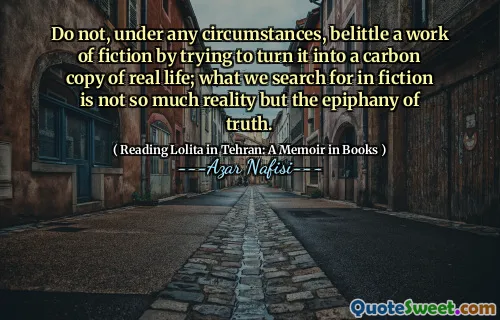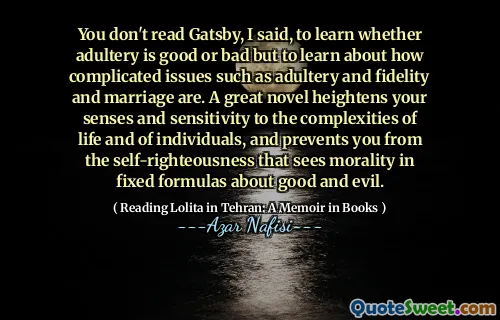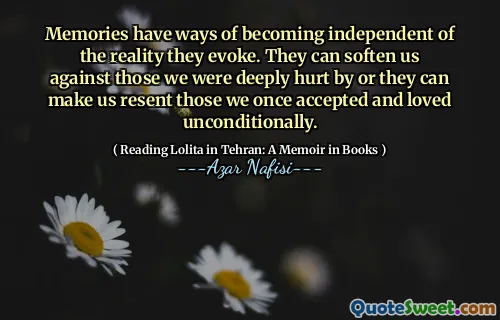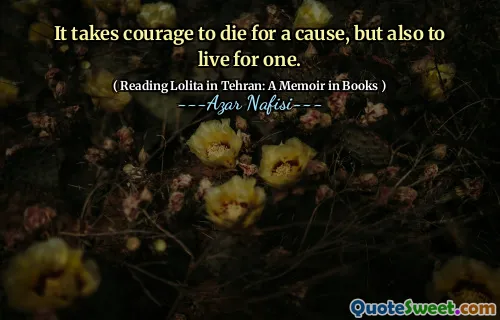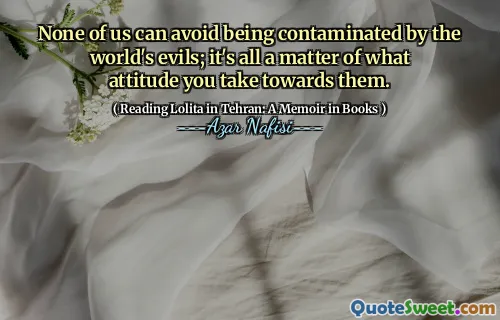
Curiously, the novels we escaped into led us finally to question and prod our own realities, about which we felt so helplessly speechless.
📖 Azar Nafisi
In "Reading Lolita in Tehran," Azar Nafisi explores the transformative power of literature and its ability to spur introspection. The novels that her group read in secret allowed them to confront their own lives and the oppressive circumstances surrounding them. This act of reading became a means of escape, as well as a catalyst for deeper questioning of their realities, which often left them feeling voiceless in the face of restrictions.
The paradox lies in the way these fictional worlds not only provided solace but also prompted profound reflections about their own struggles. The characters and narratives in the books encouraged Nafisi and her students to examine their experiences in Iran, leading to a greater understanding of their feelings of helplessness and the cultural constraints they faced. Ultimately, literature served as a bridge between their imagination and their lived experiences.

